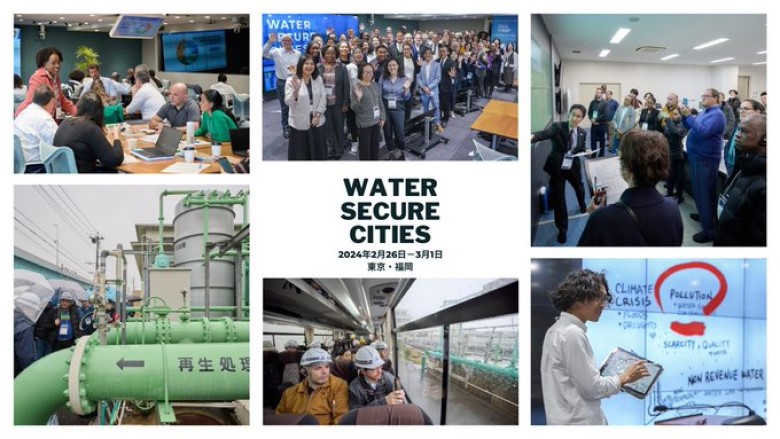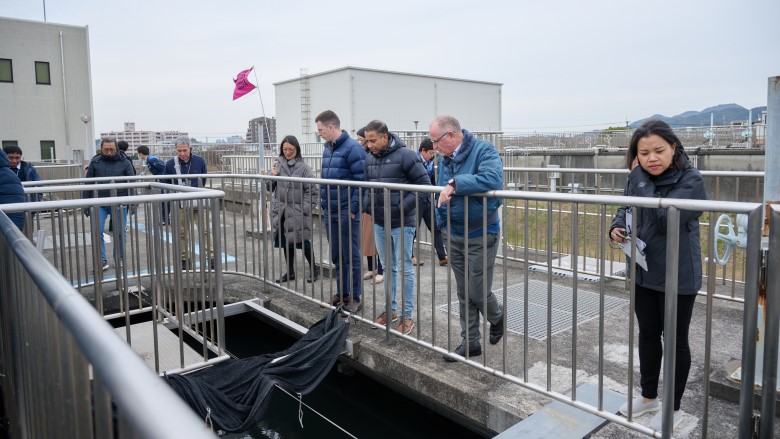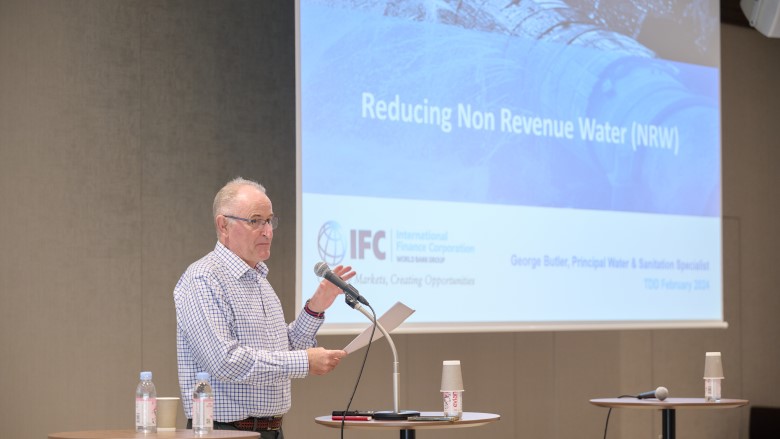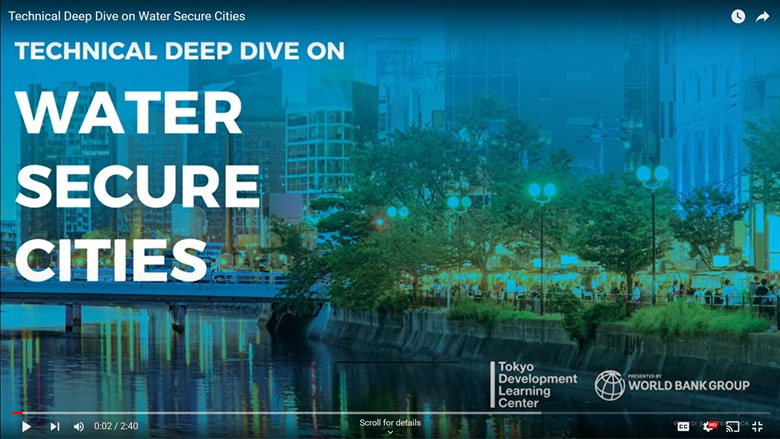
Global water resources are under pressure, making water-secure cities a top priority for d many governments. With 2.2 billion people still lacking safely managed drinking water and another 3.4 billion lacking safely managed sanitation services, national and municipal water officials, and their utility counterparts are urgently seeking solutions to urban water management challenges.💧
From February 26 to March 1, the World Bank Tokyo Development Learning Center (TDLC) in collaboration with the Water Global Practice and the Utilities for Climate (U4C) initiative of the International Finance Corporation (IFC), organized a Technical Deep Dive (TDD) on Water Secure Cities in Tokyo and Fukuoka, Japan, bringing together around 60 representatives of governments and water utilities, including six country teams and six water utility teams. As the first Technical Deep Dive delivered in collaboration with IFC, the objective of the TDD was to convene global water experts to share Japanese and global solutions to urban water resource resilience and efficiency in the face of water scarcity, climate change, and disasters. Three key topics anchored the five-day TDD: water policy and frameworks, water resources and resilience, and innovation and digital solutions.
The TDD cohort traveled to Fukuoka city, a partner in TDLC’s City Partnership Program, to witness firsthand the intersection of urbanization and climate change through real-world examples of water stress and adaptation. Fukuoka city has a unique history in which it has faced both severe water shortages and flooding in the 1970s and 1990s, making it well equipped to share its extensive water management knowledge and experience with the TDD participants. Fukuoka is known as a “water-conscious city” because it has water-conscious city policies, one of the lowest non-revenue water rates in the world and is a leader in developing facilities for water reuse and reclamation, including wastewater reuse and desalination. Site visits to Fukuoka city’s Tatara Purification Plant, City Water Control Center, and Water Reuse Center linked theory with the technical operations on the ground.

Many opportunities for peer learning and knowledge sharing were offered during the TDD. Setting the scene on day one was Angelica Nunez, Practice Manager, Urban, Resilience, and Land Global Practice, who welcomed participants, followed by thematic framing presentations coming from Gustavo Satiel, World Bank Lead Water Supply and Sanitation Specialist, and Dan Vardi, IFC Principal Investment Officer for Water, who highlighted the urgent need for water-secure cities and the critical aspects and challenges to getting there. They were followed by Toshiya Aramaki, Professor of the School of Global and Regional Studies and Toyo University, who explained Japan’s unique water management system and the roles of national and municipal governments and the private sector. Rounding out the technical presentations was Yogita Mumssen, World Bank Practice Manager, Global Water unit and Sohaib Athar, World Bank Senior Urban Specialist, who discussed the importance of urban water policies, institutions, and regulations (PIR) and intergovernmental dynamics.
Key takeaways from the first days include how converging demographics and environmental changes are placing pressure on cities, infrastructure, and water and increasing disparities in access to water services. Others include:
- Water-secure cities can safeguard access to adequate, clean water that sustains livelihoods and socio-economic development.
- Upstream enabling environments underpinned by PIR and rigorous assessments are essential.
- Japan’s policies have set clear standards for its water supply.
- Cities can close the investment gap in water infrastructure by leveraging the private sector to help mobilize capital, expertise, and innovation.
- IFC and World Bank tools can help de-risk and improve creditworthiness.
Days two and three went on to feature insightful presentations and case studies on Water Circularity by Sanyu Lutalo, World Bank Senior Water Specialist, who looked at resilience planning and lessons from circular economy principles, Robert Brears, Founder of Our Future Waters, who spoke on planning for climate resilient water demand management. Across government and water utility participants, there was great interest in managing non-revenue water. IFC’s George Butler, Principal Water and Sanitation Specialist, unpacked the issue of how more than 40% of water worldwide is lost from our networks. Finally, Isle Utility Australia’s Ani Nair and Cameron McPhail conducted an interactive session on developing high-level digital strategies. Takeaways include:
- Water circularity leads to better outcomes e.g., restored ecosystems, climate resilience, sustainable resource use, and job creation.
- Effective climate resilient water management integrates demand control, sustainable infrastructure, readiness for weather extremes, and adaptability.
- Having a good PIR framework and sound management is the best solution to improved non-revenue water rates (NRW).

Water security is an essential service underpinning almost all the Sustainable Development Goals (SDGs), particularly SDG #6 on ensuring universal access to safe and affordable drinking water, sanitation and hygiene. TDDs like this one organized by the TDLC are helping to prepare those in the front lines to tackle the immense challenges to providing sustainable urban water services.
- World Bank has explored a wide range of country experiences in delivering better urban water supply and sanitation services, including a substantial financing and analytical portfolio in all regions to support national and subnational governments and utilities with policy reforms, investments and technical assistance in urban water supply and sanitation.
- IFC, as the private sector arm of the WBG, supports client countries by bringing in much needed private sector financing and expertise in the water sector. Utilities for Climate (U4C), an IFC innovation, seeks to support water utilities in developing and implementing innovative solutions to boost commercial water infrastructure investment opportunities, improve climate resilience, and develop climate-smart utilities. The Government of Japan is the lead donor for U4C.
- TDD is TDLC’s signature one-week knowledge exchange program that synthesizes, packages, and delivers key Japanese and global best practices aimed at generating actionable solutions that can be leveraged in World Bank projects in developing countries.
